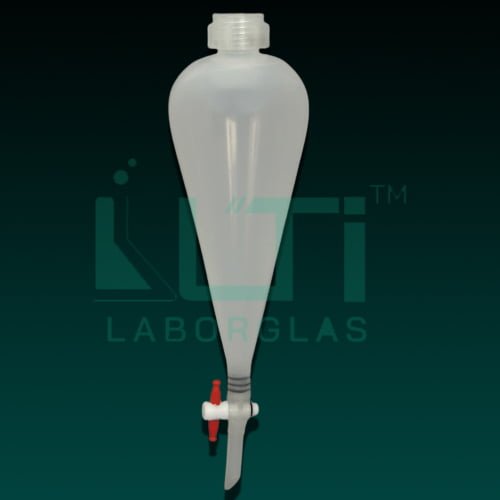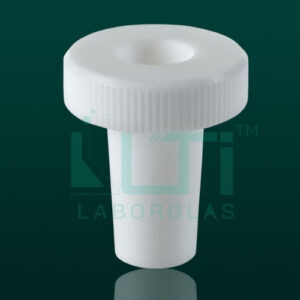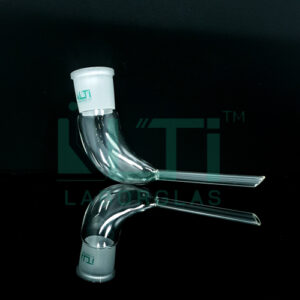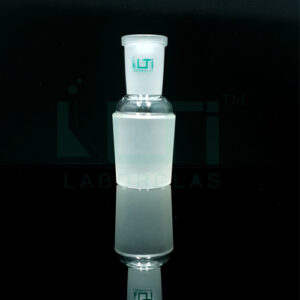- Made of Polypropylene
- Provides excellent contact clarity & Strength
- Is per shaped & autoclavable
- has leakproof screw cap threadded
- PP stopcock fitted with self lubricating PTFE plug, is push fitted to the stem of funnels
| PART No. | Capacity (ml) | PACK Qty. |
| 7070-100 | 100 | 2 |
| 7070-250 | 250 | 2 |
| 7070-500 | 500 | 2 |
Here are some common uses for a polypropylene separatory funnel:
- Chemical Resistance:
- Applications: PP separatory funnels are often used when working with aggressive chemicals or solvents that may react with or corrode other materials. The chemical resistance of polypropylene makes it suitable for a broad range of applications.
- Extraction and Separation:
- Applications: Like glass or PTFE (polytetrafluoroethylene) separatory funnels, PP separatory funnels are used for liquid-liquid extractions. They are particularly useful when dealing with organic solvents or corrosive substances that could degrade glass or metal alternatives.
- Biological Applications:
- Applications: In biological laboratories, PP separatory funnels can be used for processes involving biological samples, where the chemical inertness of polypropylene is advantageous.
- General Laboratory Use:
- Applications: PP separatory funnels can be employed for various liquid handling tasks, sample preparation, or reagent addition in laboratories where chemical compatibility and durability are essential.
- Educational Settings:
- Applications: PP separatory funnels are commonly used in educational laboratories due to their durability and lower risk of breakage compared to glass alternatives.
- Field Work:
- Applications: In fieldwork or situations where portability is crucial, the lightweight nature of polypropylene makes these funnels a practical choice.
- Corrosive Environments:
- Applications: PP separatory funnels are suitable for use in environments where corrosion is a concern, such as laboratories dealing with corrosive acids or bases.





